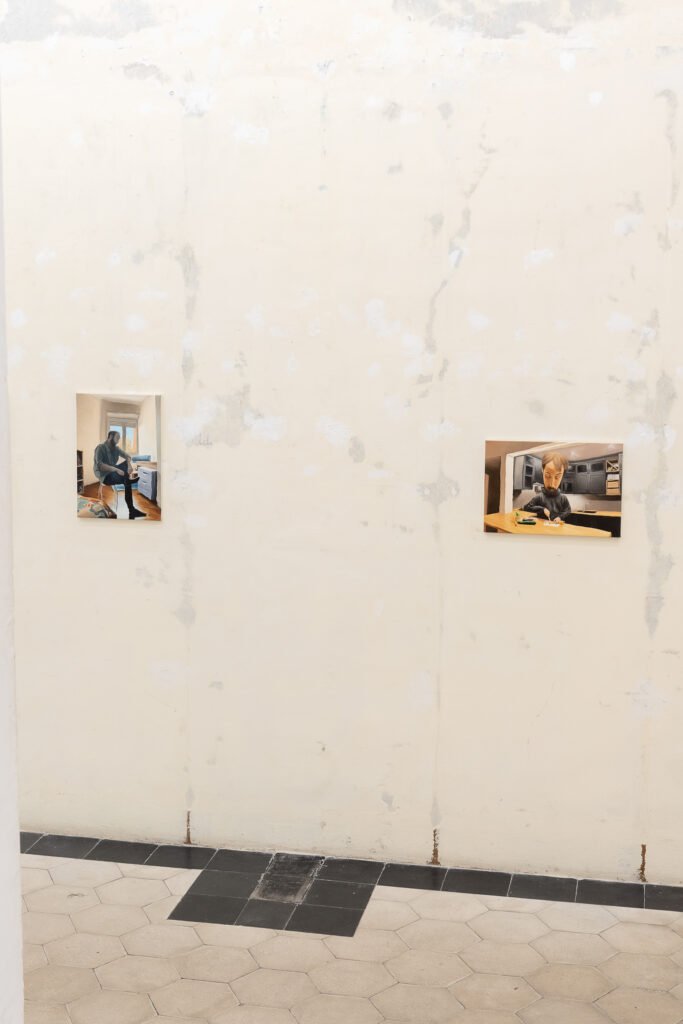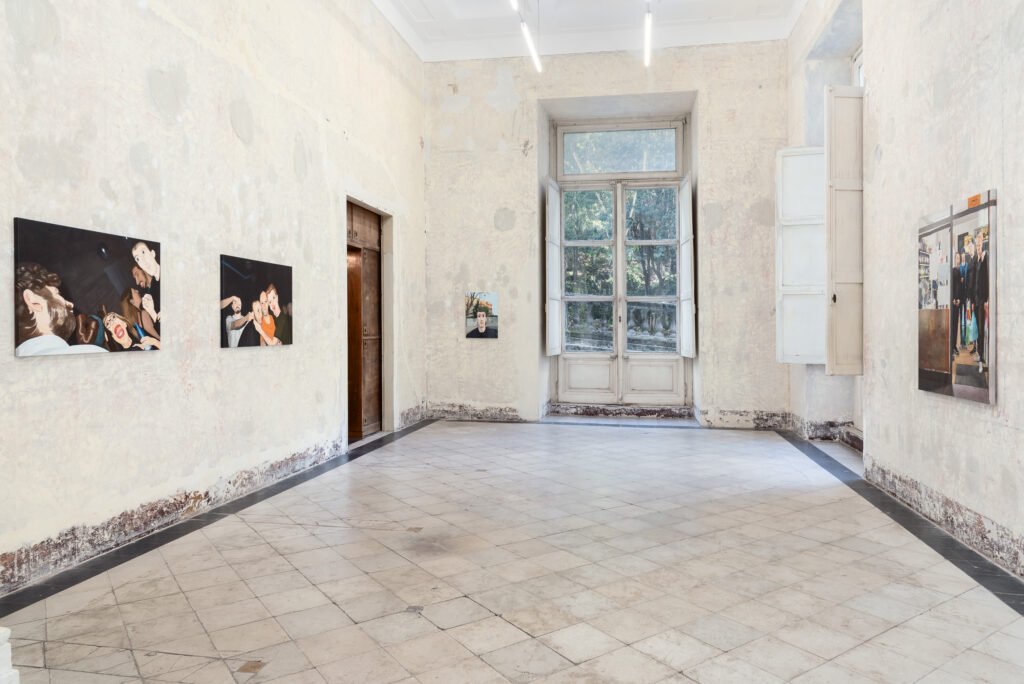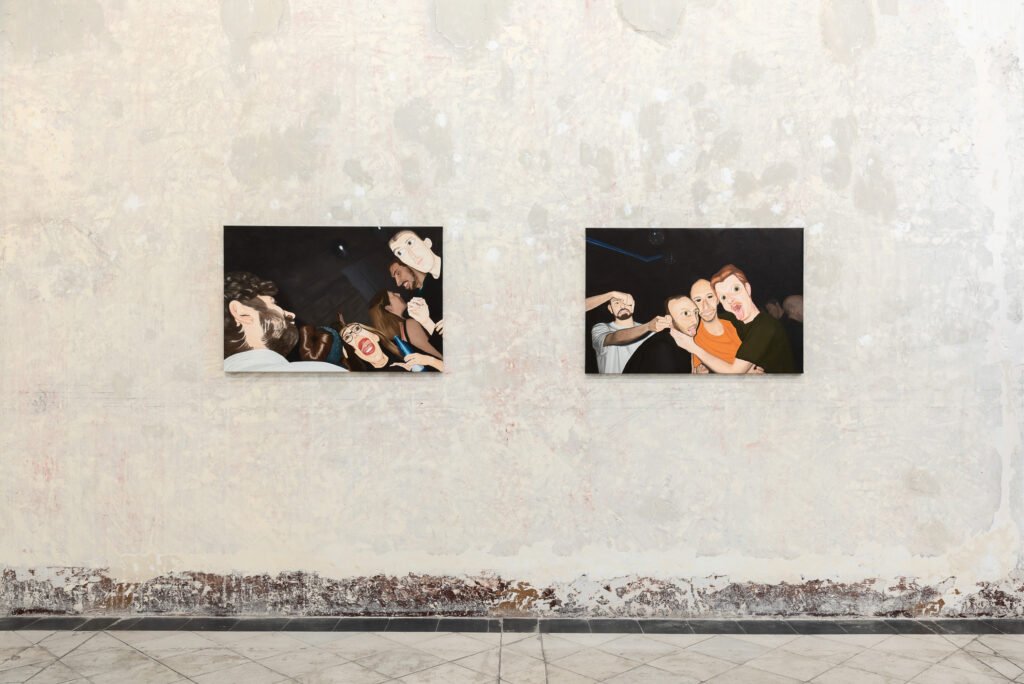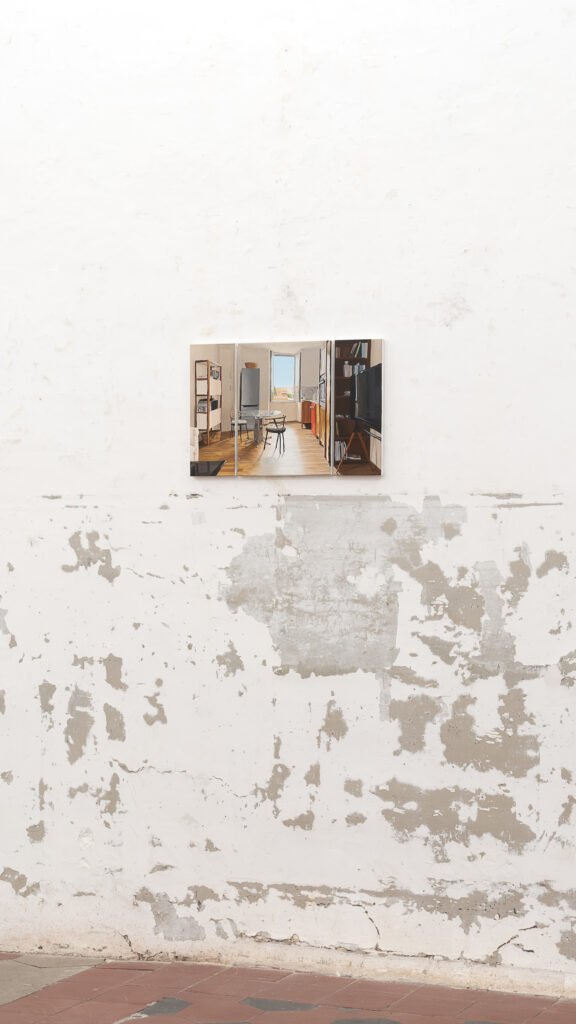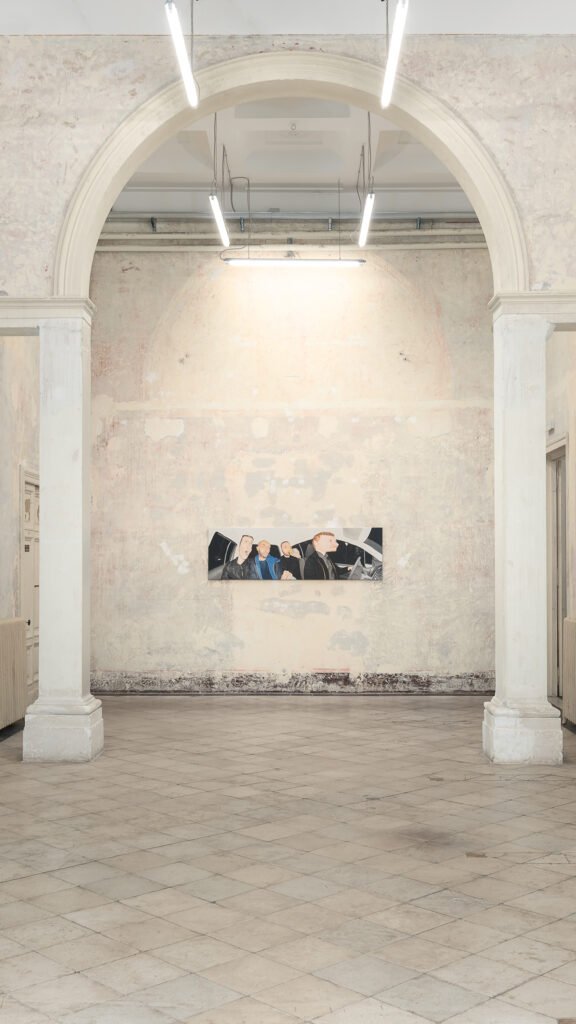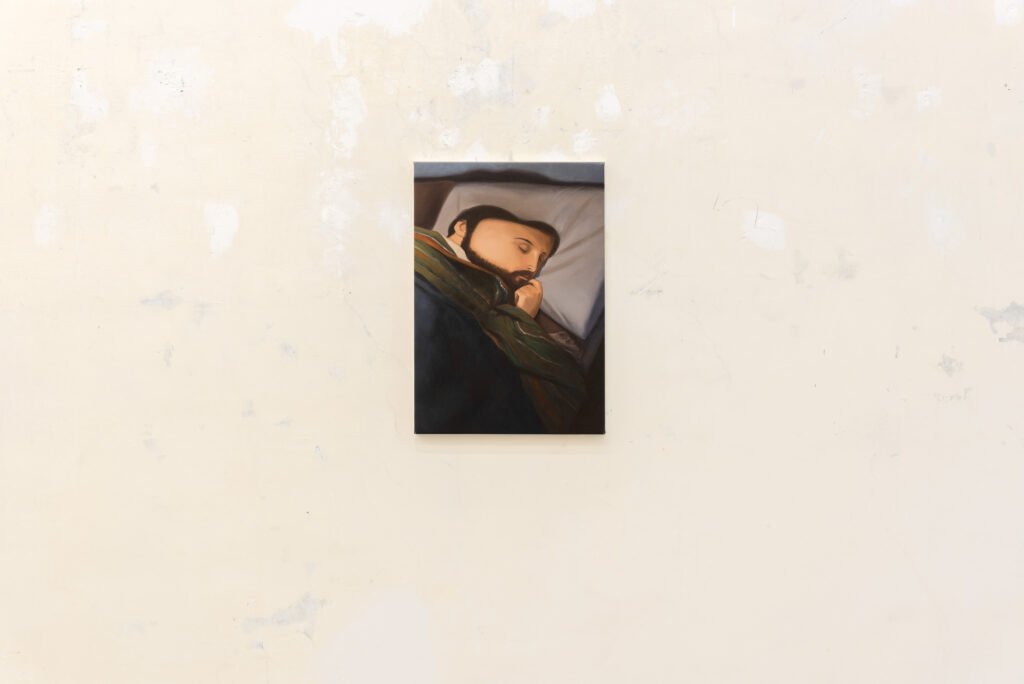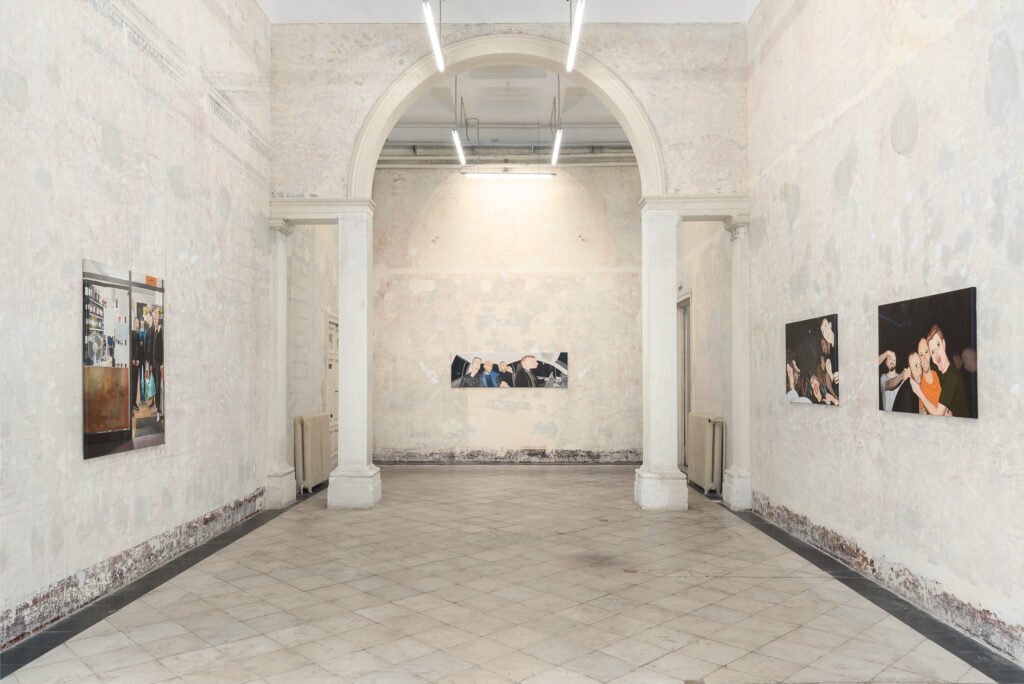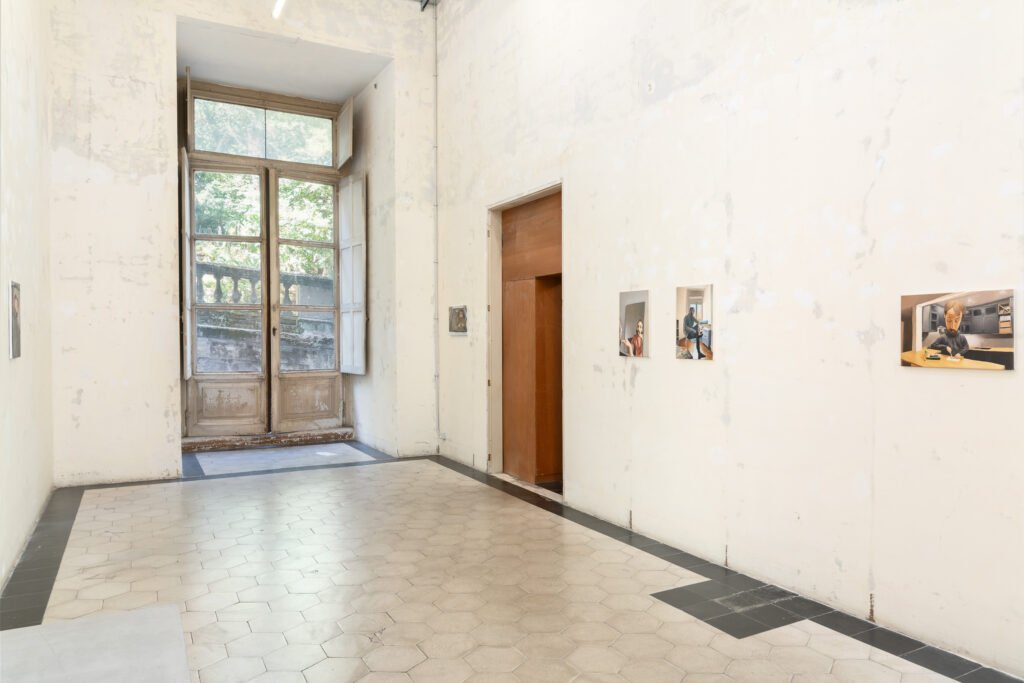Tappa Fissa
Connecting with Tappa Fissa by Flavio Orlando means embarking on a journey through the landmarks and obligatory stops that punctuate the rhythm of life. The starting point lies in the choice of subjects, which focuses on the artist’s generation, that of the new thirty-somethings. This developmental phase can be likened to the anxious stage of a newborn. On one hand, the suffocating anxieties of family members revolve around health, motor development, and socialization. On the other hand, there is no less a significant social pressure: the expectation to achieve certain professional and emotional milestones. Adding to this are the first signs of physical and mental decline, feelings of isolation, and existential crises. These are all aspects intimately connected to contemporary society and speak to our times. To avoid falling into an emotional abyss, one seeks a balance between the Lacanian desire to have one’s desires recognized and the marginalization from a context often perceived as alienating. Orlando’s scenes of life, akin to those a painter of the Late Middle Ages might title, also reveal a kinship in the distortion of forms. These scenes narrate as much about today as they do about sentiments that have touched or will touch other historical periods.
Tappa Fissa it’s a story in three acts, one for each room of the gallery’s exhibition space. The narrative begins by exploring relational dynamics and the joy, which sometimes becomes a necessity, of replacing the everyday routine with a journey shared with familiar companions. In this break from monotony, an experience unfolds that, if repeated over time, creates new habits that evolve into collective rituals for a new social life: breaking the routine with a new routine. By dismantling one repetition, a new one is formed, thus entering a vortex that feels as paradoxical as it does futile, yet remains essential. The nightclub and everything that happens before and after it become a memory-making machine, crafting shared memories where different perceptions accumulate, ultimately forming a single, unified recollection.
In the second act, both the setting and the emotions of the new protagonist change. Solitude is the leitmotif of the entire pictorial cycle, in which the depicted subject performs ordinary gestures in equally commonplace settings. We are presented with the contemporary human condition, where each viewer sees themselves in the circumstances and mechanical actions experienced daily. Despite living in an era increasingly marked by frenetic rhythms and relentless obligations, daily life leads us toward a sort of automatism. The repetition of these actions creates a structure that gives meaning and stability to life. We feel the protagonist’s solitude, understood as introspection and self-reflection, inviting us not to disregard even the most habitual moments. This creates a sense of continuity and belonging to something seemingly insignificant, which becomes an anchor that keeps us rooted in the present. While this offers a certain security, it can also lead to a disconnection from our inner self and dull our perception of reality, making each day indistinguishable from the next.
The plot concludes with an unresolved scenario. An open-ended finale where each interpretation becomes subjective, embodying a sense of openness and unrealized potential. In an apparently empty setting, reflection on life and pivotal moments that have defined one’s journey takes place. Orlando’s final artwork on display is an invitation, an exhortation to recognize the importance of past moments and to look with hope and determination towards the future. Amidst the melancholy of a bare room, a view emerges that connects us to the outside world. The city, in this case a suburb, becomes a symbol of opportunity and unexpected encounters. Beyond the calm and silence indoors, there are still countless roads to explore: remain confined within the four walls or envision a new future? The mundane and the existential intertwine in the mind, plunging into a reflection on the meaning of our existence: a fixed stage that touches every individual in their life journey.



